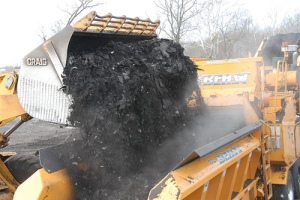Today I have the pleasure of another guest post. Christopher G. Hill is lawyer and owner of the Richmond, VA firm, The Law Office of Christopher G. Hill, PC, a LEED AP. Chris has been nominated and elected by his peers to Virginia’s Legal Elite in the Construction Law category on multiple occasions. He specializes in mechanic’s liens, contract review and consulting, occupational safety issues (VOSH and OSHA), and risk management for construction professionals. Chris authors the Construction Law Musings blog where he discusses legal and policy issues relevant to construction professionals.
First of all, thanks to Melissa for the great opportunity to post here at her blog. She has been kind enough to post on two occasions (here and here) regarding the need for specificity and proper drafting in construction contracts.
Aside from the “back end” implications of a poorly drafted construction contract, there are other benefits to a well drafted set of construction documents. The overarching reason for a well drafted contract is the setting of expectations. Because the “contract is king” in most states, these initial expectations are key.
Without further ado, here are my thoughts on the proper setting of expectations.
1. Make sure that the scope of work is well outlined. Mere reference to “plans and specifications” is not enough. You need to have at least a date for each of these or else a specific list of items to be performed and the specific scope of those items.
2. Be sure that your dispute resolution procedures are well outlined. This needs to be very specific and set forth any claims process. While I am not a huge fan of mandatory arbitration, this is one area where you can tailor the dispute resolution to your needs.
3. Make sure that the change order process is well defined and followed. I cannot count the number of disputes that I have been involved in that come down to this process.
4. While it sounds simple, define what “finished” means. Does it mean acceptance by the architect? The Owner? The General Contractor? What does “acceptance” mean? All of these seem easy to think of answers to until the project is “finished” in your mind and not finished in the owner/general contractors mind.
5. Attorney Fees, Attorney Fees, Attorney Fees! Without this provision (or a statute that allows for the recovery of these fees) most states’ courts will not allow you to recover the fees expended in resolving a contract dispute.
6. Most importantly, read the contract and all of those pesky documents that are referred to by that contract. Without a thorough understanding of the provisions of these other documents, you cannot know your expectations entering into a construction project.
In a world where one word in a contract makes all the difference, setting these expectations early can not only help you out with a dispute but can go a long way toward avoiding the disputes and (heaven forbid) do so without the intervention of your local construction lawyer.
Chris and I welcome your thoughts and comments. Be sure to stop by Chris’ blog and say “hi” too!




